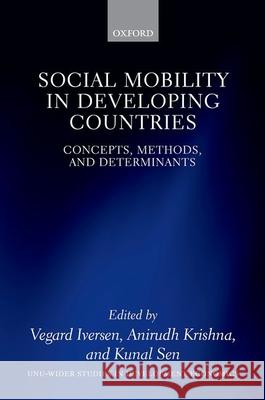Social Mobility in Developing Countries: Concepts, Methods, and Determinants » książka
topmenu
Social Mobility in Developing Countries: Concepts, Methods, and Determinants
ISBN-13: 9780192896858 / Angielski / Twarda / 2022 / 512 str.
Kategorie:
Kategorie BISAC:
Wydawca:
Oxford University Press, USA
Język:
Angielski
ISBN-13:
9780192896858
Rok wydania:
2022
Ilość stron:
512
Waga:
0.92 kg
Wymiary:
22.86 x 15.75 x 3.56
Oprawa:
Twarda
Wolumenów:
01











